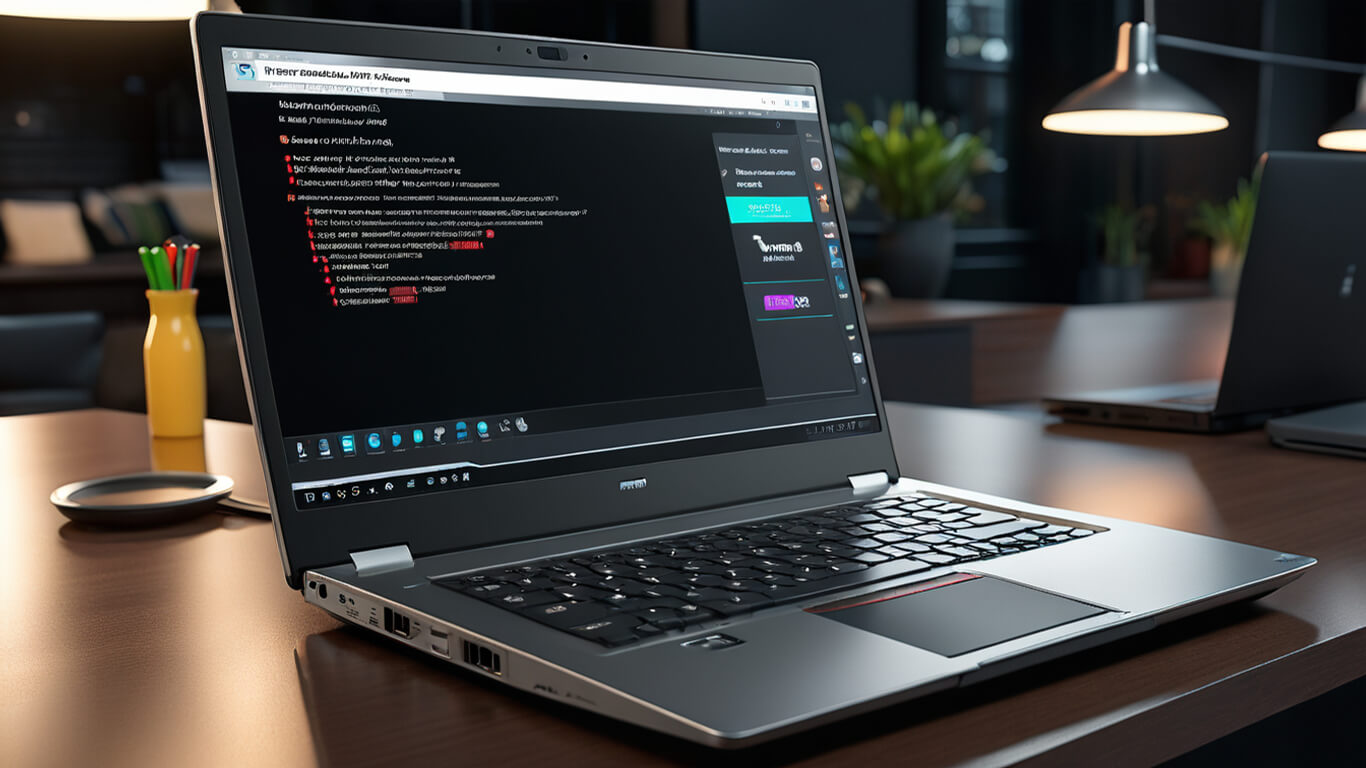In today’s digital age, it is more important than ever to prioritize cyber hygiene to protect yourself from online threats.
From strong passwords to regular software updates, implementing best practices can safeguard your digital well-being.
We will explore why cyber hygiene is crucial, the consequences of poor cyber hygiene, common cyber threats to be aware of, and how you can educate yourself and others on staying safe online.
Stay tuned to learn how you can maintain your digital health effectively.
Table of Contents
Key Takeaways:
Regularly updating software and using strong passwords are key practices for maintaining good cyber hygiene. Neglecting cyber hygiene can result in serious consequences such as data breaches and financial loss. Education and staying informed about current cyber threats are important for preventing cyber attacks and protecting your digital health.
What Is Cyber Hygiene?
Cyber hygiene refers to the practice of maintaining good digital hygiene to safeguard data, devices, and networks from cyber threats.
In many ways, cyber hygiene can be likened to personal hygiene. Just as we wash our hands, brush our teeth, and take other preventative measures to protect our physical health, practicing cyber hygiene involves regular actions to safeguard our digital health.
These actions may include installing software updates, using strong and unique passwords, being cautious of suspicious emails or links, and regularly backing up important data. By implementing these measures, both individuals and organizations can significantly reduce the risk of falling victim to cyber attacks.
Why Is Cyber Hygiene Important?
Maintaining proper cyber hygiene is crucial for organizations and individuals to mitigate the risks of cyber threats and enhance overall cybersecurity.
Cyber hygiene encompasses a series of practices that focus on securing digital environments, such as regularly updating software and operating systems, using strong and unique passwords, being cautious of phishing attempts, and implementing multi-factor authentication.
By diligently following these measures, individuals and organizations can significantly reduce vulnerabilities and protect sensitive data from falling into the hands of cybercriminals.
Fostering a culture of cyber hygiene within an organization not only strengthens its defenses against cyber threats but also contributes to building a resilient cyber infrastructure that can effectively repel and recover from potential cyber attacks.
What Are the Consequences of Poor Cyber Hygiene?
Poor cyber hygiene practices can lead to severe consequences such as security breaches, data loss, financial implications, and damage to an organization’s reputation.
When organizations neglect proper cyber hygiene, they leave themselves vulnerable to various cybersecurity threats. Security incidents can compromise sensitive data, disrupt operations, and lead to legal consequences.
Data breaches resulting from lax cyber hygiene can have far-reaching effects, including financial losses and damage to customer trust. The aftermath of a breach can be costly, not only in terms of monetary impact but also due to the erosion of reputation and loss of business opportunities.
Poor cyber hygiene practices can hamper operational efficiency, leading to downtime, system failures, and inefficiencies in day-to-day processes.
What Are the Best Practices for Cyber Hygiene?
Implementing best practices for cyber hygiene is essential to fortify cybersecurity defenses and protect against cyber threats.
One of the fundamental aspects of maintaining good cyber hygiene is strong password management. By using complex, unique passwords for each account and regularly updating them, individuals can significantly reduce the risk of unauthorized access.
Staying vigilant with regular software updates ensures that security patches are in place to address known vulnerabilities, making it harder for cybercriminals to exploit weaknesses.
Utilizing reputable antivirus software helps detect and remove malicious programs, further safeguarding systems from malware attacks.
Strong Passwords
Using strong and unique passwords is a fundamental aspect of cyber hygiene, enhancing authentication security and access control.
Strong passwords play a crucial role in securing your online presence as they act as the first line of defense against unauthorized access to your digital assets. By creating complex passwords, consisting of a mix of uppercase and lowercase letters, numbers, and special characters, you make it significantly harder for cybercriminals to crack them using automated tools.
It is also important to avoid using easily guessable information such as birthdays, names of family members, or common phrases, as these can be exploited through social engineering or brute force attacks.
Regularly updating your passwords and refraining from reusing them across multiple accounts further strengthens your defense mechanism, reducing the risk of a domino effect in case one of your accounts gets compromised.
Regular Software Updates
Regularly updating software is a critical practice in cyber hygiene to address vulnerabilities and protect systems from exploitation.
Timely software updates play a crucial role in ensuring the security and stability of digital systems. By employing effective patch management techniques, organizations can swiftly address identified vulnerabilities and prevent potential cyber threats.
Failure to keep software updated can leave systems exposed to various security risks, such as malware infections, data breaches, and unauthorized access. Hackers often target known vulnerabilities in outdated software to exploit weaknesses and gain access to sensitive information.
Updating software in a timely manner is essential for staying ahead of evolving cyber threats, reducing the likelihood of security incidents, and safeguarding confidential data.
Use of Antivirus Software
Utilizing antivirus software is a key component of cyber hygiene to detect and mitigate malware and virus threats.
Antivirus software plays a crucial role in safeguarding digital devices and networks against a myriad of cyber threats. By constantly scanning for malicious software, it acts as a virtual shield, actively identifying and neutralizing potential risks. This proactive approach helps prevent malware infiltration, reducing the likelihood of data breaches and system compromises.
Ensuring regular updates of antivirus software is essential to stay a step ahead of evolving threats. These updates equip the software with the latest virus definitions and security patches, enhancing its ability to combat emerging malware strains.
Secure Network Connections
Securing network connections through encryption and access control measures is vital for maintaining cyber hygiene and safeguarding data transmissions.
Encryption, which is the process of converting data into a code to prevent unauthorized access, plays a crucial role in ensuring that sensitive information remains confidential during transit.
By utilizing robust encryption algorithms, organizations can effectively shield their data from cyber threats and eavesdropping activities.
Access control mechanisms enable businesses to define who can access specific resources on the network, thereby reducing the risk of unauthorized users gaining entry to critical systems.
Use of Two-Factor Authentication
Employing two-factor authentication enhances security and access controls, making it a recommended practice for maintaining robust cyber hygiene.
Two-factor authentication involves the use of two different factors to verify the identity of a user, typically combining something the user knows (like a password) with something the user has (like a smartphone for receiving verification codes). This dual-layered approach significantly improves security by adding an extra hurdle for unauthorized individuals attempting to gain access to sensitive information or accounts.
By requiring two separate pieces of information for authentication, two-factor authentication fortifies digital defenses, reducing the risk of data breaches and cyber attacks. This method acts as a strong deterrent to potential hackers, even if they manage to acquire one authentication factor, as they would still need the second factor to gain entry.
Regular Backups
Regularly backing up data is a critical cybersecurity practice that ensures data resilience and recovery in the event of security incidents.
Having a reliable backup system in place is like having an insurance policy for your valuable data. It acts as a safety net, allowing you to restore information that may be lost or compromised due to various cyber threats.
Backup strategies play a vital role in safeguarding businesses and individuals against ransomware attacks, natural disasters, hardware failures, or accidental deletions. By regularly backing up your data, you significantly reduce the potential damage caused by such incidents.
What Are the Common Cyber Threats to Be Aware Of?
Understanding common cyber threats is essential for developing effective cybersecurity defenses and practicing good cyber hygiene.
Phishing scams remain a significant threat, with cybercriminals using deceptive emails or websites to steal sensitive information, such as login credentials or financial data. Malware attacks, including viruses, worms, and trojans, can disrupt systems, compromise data integrity, and cause financial losses. Ransomware incidents lock users out of their own systems or files, demanding a ransom for access restoration. Social engineering tactics manipulate individuals into divulging confidential information, exploiting human psychology to gain unauthorized access.
Phishing Scams
Phishing scams are deceptive tactics used by cybercriminals to trick individuals into divulging sensitive information, highlighting the need for vigilance in cyber hygiene practices.
These scams have become increasingly prevalent in cyber attacks due to their effectiveness in exploiting human vulnerabilities. Phishing tactics often involve creating fake emails or websites that appear legitimate, aiming to deceive unsuspecting victims into providing personal details such as login credentials or financial information. To avoid falling victim to a phishing attempt, it is crucial to scrutinize any unsolicited emails or messages, checking for spelling errors, unfamiliar sender addresses, or urgent requests for sensitive data. By educating users about the red flags of phishing scams and promoting a culture of skepticism towards unsolicited communication, organizations can greatly reduce the risk of data breaches and identity theft.
Malware Attacks
Malware attacks involve the deployment of malicious software to compromise systems and steal data, underscoring the importance of robust cyber hygiene measures.
These insidious attacks can take various forms, such as viruses, worms, ransomware, or trojans, infiltrating devices and networks with devastating consequences. Once malware infiltrates a system, it can disrupt operations, steal sensitive information, or even render the entire network vulnerable to further exploitation.
Preventive measures like regular software updates, strong password protocols, and employee training play a crucial role in fortifying defenses against malware. Implementing firewall protection, using antivirus software, and conducting regular security audits are vital components in safeguarding against these digital threats.
Ransomware Attacks
Ransomware attacks encrypt data and demand ransom payments for decryption, posing significant threats to data security and highlighting the importance of cyber resilience strategies.
Ransomware attacks have become increasingly sophisticated and prevalent, targeting individuals, businesses, and even government entities. These malicious software infiltrate systems through phishing emails, malicious attachments, or compromised websites, encrypting valuable data to render it inaccessible. Once the data is locked, the attackers demand payments in cryptocurrency to provide the decryption key. Such attacks can have devastating consequences, leading to financial losses, reputational damage, and operational disruptions.
Social Engineering
Social engineering tactics manipulate human behavior to deceive individuals into divulging confidential information or granting unauthorized access, necessitating robust cyber hygiene practices to counter such threats.
Social engineering tactics often involve psychological manipulation, exploiting human tendencies such as trust, authority, and urgency to trick unsuspecting victims. Attackers may use tactics like phishing emails, pretexting, or baiting to manipulate individuals into making hasty decisions or disclosing sensitive data.
- Phishing emails typically impersonate legitimate entities or use emotional triggers to prompt recipients to click on malicious links or provide confidential information.
- Pretexting involves creating a fabricated scenario to manipulate someone into divulging information or performing actions they wouldn’t normally do.
- Baiting attacks lure victims with promises of reward or by exploiting curiosity to trick them into downloading malware or sharing credentials.
Recognizing these social engineering tactics is crucial to thwarting potential attacks. Building a culture of cybersecurity awareness within organizations and educating individuals on how to identify and respond to such attempts is key in mitigating the risks associated with social engineering.
How Can You Educate Yourself and Others on Cyber Hygiene?
Educating yourself and others on cyber hygiene is essential for promoting a culture of cybersecurity awareness and resilience.
One effective way to enhance your cyber hygiene knowledge is by attending cybersecurity workshops that cover various topics ranging from password security to phishing scams. These workshops provide valuable insights and practical tips on how to safeguard your digital information. Staying informed about the latest cyber threats through reputable sources such as cybersecurity websites, blogs, and news outlets can help you stay ahead of potential risks.
Attend Cybersecurity Workshops and Seminars
Participating in cybersecurity workshops and seminars can enhance knowledge and skills in cyber hygiene practices, enableing individuals and organizations to bolster their cybersecurity defenses.
By attending these events, participants can gain access to the latest tools, techniques, and best practices in the field of cybersecurity. Networking opportunities at these gatherings allow for interactions with industry experts, enabling valuable sharing of insights and experiences. Understanding emerging threats and trends is crucial in staying ahead in the constantly evolving landscape of cybersecurity.
Stay Informed on Current Cyber Threats
Remaining up-to-date on emerging cyber threats is essential for enhancing preparedness and implementing effective cyber hygiene practices.
As the cyber landscape evolves rapidly, new threats are constantly emerging, making it crucial for individuals and organizations to stay informed. By staying abreast of the latest developments in cybersecurity, one can better understand potential risks and vulnerabilities that may be exploited by threat actors. Utilizing reliable sources of threat intelligence, such as cybersecurity blogs, industry reports, and government advisories, can provide valuable insights into the current threat landscape.
Implementing a proactive approach to cybersecurity involves continuous monitoring of networks, systems, and devices to detect any suspicious activities or anomalies promptly. Employing robust security measures, such as regular software updates, strong password policies, and multi-factor authentication, can significantly enhance an organization’s defenses against cyber threats.
Teach Your Family and Friends About Cyber Hygiene
Educating family and friends about cyber hygiene is a proactive step to create a safer digital environment and protect loved ones from cyber threats.
While being aware of cyber threats is essential, it’s equally important to share this knowledge with those around you. By engaging in conversations around cybersecurity best practices and fostering a culture of vigilance, individuals can enable their social circles to navigate the digital world safely.
Simple measures like setting strong, unique passwords, enabling two-factor authentication, and being cautious of phishing attempts can go a long way in bolstering online security. Encouraging regular software updates and conducting routine privacy checks on social media platforms can further fortify one’s cyber defenses. https://www.youtube.com/embed/EpZbvRowP8A
Frequently Asked Questions
What is cyber hygiene and why is it important?
Cyber hygiene refers to the practices and habits that individuals and organizations use to maintain their digital health and security. It involves taking steps to protect against cyber threats and keep information safe. It is important because a lack of proper cyber hygiene can leave you vulnerable to cyber attacks, data breaches, and other digital risks.
What are some basic cyber hygiene practices?
Some basic cyber hygiene practices include using strong and unique passwords, regularly updating software and apps, avoiding suspicious emails and links, and backing up important data. It is also important to use antivirus software and enable firewalls for added protection.
How can I protect my personal information online?
One of the best ways to protect your personal information online is to be mindful of what information you share and who you share it with. Be cautious when entering personal information on websites and only provide it to trusted sources. Additionally, regularly review your privacy settings and limit the amount of personal information you make public on social media.
What should I do if I suspect my computer has been compromised?
If you suspect that your computer has been compromised, it is important to take immediate action. Disconnect from the internet, run a virus scan, and change all of your passwords. You should also contact your bank and credit card companies to alert them of potential fraudulent activity.
Are there any resources available to help me improve my cyber hygiene?
Yes, there are many resources available to help individuals and organizations improve their cyber hygiene. The National Cyber Security Alliance and the Federal Trade Commission offer tips and guidelines for staying safe online. Additionally, many antivirus software companies offer free tools and resources for improving cyber hygiene.
How can I educate my family and friends about cyber hygiene?
One way to educate your family and friends about cyber hygiene is to lead by example. Make sure you are following best practices and share your knowledge with them. You can also recommend resources and tools to help them improve their own cyber hygiene practices.







